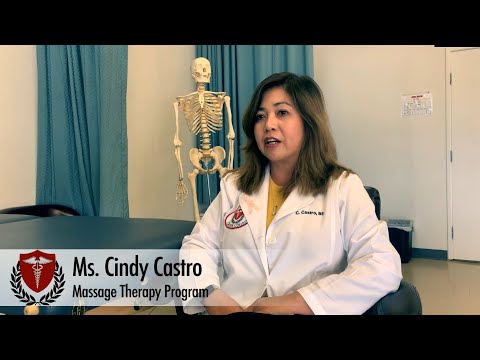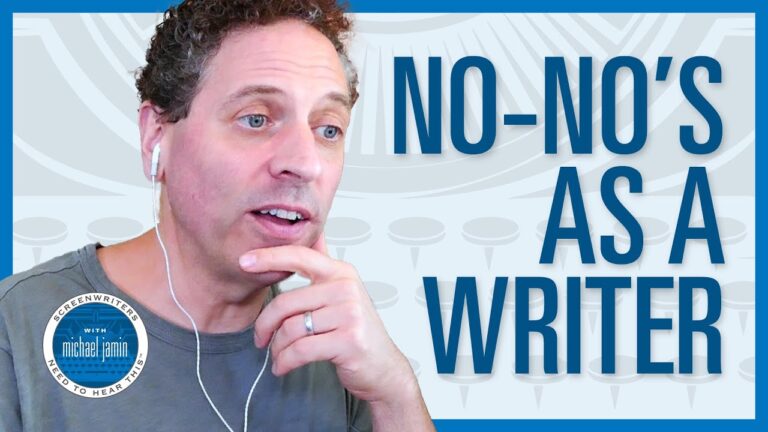Lucrative Massage Therapist Career: Job Description & Salary
A Massage Therapist Job Description entails providing therapeutic massages to clients to relieve stress, reduce pain, and promote overall well-being. They assess clients’ needs and create personalized treatment plans, incorporating various massage techniques such as Swedish, deep tissue, and hot stone massages. Massage Therapists also utilize essential oils and lotions to enhance the therapeutic experience.
Massage Therapists typically work in spas, wellness centers, or private practices. They must possess excellent communication and interpersonal skills to build rapport with clients and understand their specific concerns. Additionally, they should maintain a clean and organized workspace and adhere to ethical standards and confidentiality.
As for the Massage Therapist Salary, it varies depending on several factors such as experience, location, and employment setting. On average, Massage Therapists earn about $42,820 per year, with the top earners making over $79,180 annually. Self-employed therapists may have more control over their income, as they can set their own rates and hours.
Overall, a career as a Massage Therapist offers the opportunity to help others improve their physical and mental well-being through the power of touch. With the demand for massage therapy increasing, it can be a rewarding and financially stable profession for those passionate about holistic healing.

Massage Therapist Job Description Template
Massage Therapist Job Description A massage therapist is a skilled professional who provides therapeutic massages to clients for relaxation, stress relief, pain management, and overall well-being. They use various techniques and modalities to manipulate soft tissues and muscles in the body. The primary responsibilities of a massage therapist include assessing clients’ needs and preferences, providing customized massages based on their conditions, and maintaining accurate client records. They must have a good understanding of anatomy and physiology to identify areas of tension or pain and determine the appropriate techniques to use. Massage therapists also educate clients on self-care techniques and exercises to improve their physical and mental health. They may recommend specific stretches or relaxation techniques to enhance the effects of the massage therapy. Additionally, massage therapists must ensure a safe and comfortable environment for their clients by maintaining cleanliness and sanitation in their workspace. They may use various tools and equipment such as oils, lotions, and hot stones to enhance the massage experience. Two important qualities for a massage therapist are empathy and good communication skills. Empathy allows them to connect with their clients on a deeper level and understand their needs. Good communication skills are essential for effectively explaining the massage process, discussing clients’ concerns, and obtaining informed consent. In summary, a massage therapist provides therapeutic massages to clients to promote relaxation, relieve stress, and manage pain. They must have a good understanding of anatomy, possess empathy, and have excellent communication skills to ensure client satisfaction and well-being.Massage Therapist Responsibilities
Massage Therapist Requirements
How Much Does A Massage Therapist Make?
Massage Therapist Salary
| Experience Level | Annual Salary |
|---|---|
| Entry Level | $30,000 – $50,000 |
| Intermediate Level | $50,000 – $70,000 |
| Experienced Level | $70,000 – $100,000 |
| Master Level | $100,000+ |
A massage therapist’s salary can vary based on their level of experience. Entry-level massage therapists typically earn between $30,000 and $50,000 per year. As they gain more experience and expertise, their salary can increase to between $50,000 and $70,000 for intermediate-level therapists. Experienced massage therapists with a strong client base and reputation can earn between $70,000 and $100,000 annually. Those at the master level, who have extensive experience and advanced skills, often earn $100,000 or more per year. Please note that these salary ranges may vary depending on factors such as location, industry, and additional certifications or specialties.
Massage Therapist Salaries by Country
Top Paying Countries for Massage Therapist
| Country | Average Salary |
|---|---|
| United States | $50,000 |
| Australia | $45,000 |
| Canada | $42,000 |
| Switzerland | $40,000 |
| Germany | $38,000 |
Massage therapists in the United States earn an average salary of $50,000 per year, making it one of the top paying countries for this profession. Australia follows closely behind with an average salary of $45,000, while Canada offers an average salary of $42,000. Switzerland and Germany also provide competitive salaries for massage therapists, with average earnings of $40,000 and $38,000 respectively. These figures highlight the financial rewards that can be obtained in certain countries within the massage therapy industry. Pursuing a career as a massage therapist in these countries can lead to a financially stable and rewarding profession.
A video on the topic Massage Therapist
Video Source : Healthcare Career CollegeInterview Questions for Massage Therapist
1. Can you briefly describe your background and experience as a massage therapist?
I have been practicing as a massage therapist for the past five years. I completed my training at a reputable massage therapy school and have since worked in various settings, including spas, wellness centers, and chiropractic clinics. I have experience in a wide range of massage techniques, including Swedish, deep tissue, sports massage, and prenatal massage.
2. What inspired you to pursue a career in massage therapy?
I have always been passionate about helping others and promoting overall well-being. Massage therapy allows me to combine my interest in healthcare with my desire to make a positive impact on people’s lives. I find great satisfaction in relieving pain, reducing stress, and improving the physical and mental health of my clients through the healing power of touch.
3. How do you tailor your massage sessions to meet the specific needs of each client?
Before each session, I conduct a thorough assessment and consultation with the client to understand their specific concerns, goals, and any medical conditions they may have. Based on this information, I customize the massage technique, pressure, and focus areas to address their individual needs. I also encourage open communication during the session, so clients can provide feedback and make adjustments if necessary.
4. How do you ensure the comfort and safety of your clients during a massage session?
Client comfort and safety are my top priorities. I maintain a clean and well-equipped massage room with a comfortable table and appropriate lighting and temperature. I always use high-quality and hypoallergenic oils or lotions. I also ensure that clients are properly draped throughout the session to maintain their privacy and comfort. I am trained in proper body mechanics to prevent any strain or injury to myself or the client.
5. How do you stay updated with the latest developments and research in the field of massage therapy?
I believe in the importance of continuous learning and professional development. I regularly attend workshops, seminars, and conferences related to massage therapy. I also subscribe to reputable industry publications and online resources to stay updated with the latest research, techniques, and trends. Additionally, I actively participate in peer discussions and networking groups with fellow massage therapists to exchange knowledge and experiences.
6. How do you handle clients who may be nervous or uncomfortable during a massage session?
I understand that some clients may feel nervous or uncomfortable, especially if it is their first time receiving a massage. I create a safe and welcoming environment by explaining the process, addressing any concerns they may have, and ensuring their privacy and comfort. I encourage open communication throughout the session, allowing clients to express their preferences, concerns, or discomfort. I also adjust my approach and techniques accordingly to make them feel at ease.
7. Can you share a success story or memorable experience you’ve had as a massage therapist?
One memorable experience I had was working with a client who suffered from chronic back pain due to a previous injury. Through a combination of deep tissue massage, stretching, and regular sessions, I was able to significantly reduce their pain and improve their overall mobility. Witnessing the positive impact of my work on their daily life was extremely rewarding and reinforced my passion for massage therapy.
8. How do you maintain your own physical and mental well-being as a massage therapist?
As a massage therapist, self-care is crucial. I prioritize regular exercise, proper nutrition, and adequate rest to maintain my own physical well-being. I also practice meditation and other stress-management techniques to support my mental and emotional health. Additionally, I schedule regular massages for myself to experience the benefits firsthand and to ensure that I am in the best condition to provide quality treatments to my clients.
9. How do you handle difficult or challenging clients?
I believe in approaching every client with empathy, patience, and professionalism. If a client is difficult or challenging, I strive to understand their concerns and expectations through open communication. I listen actively, address their concerns with empathy, and offer suggestions or adjustments to make them more comfortable. If necessary, I involve the client in decision-making processes to ensure their satisfaction. Ultimately, my goal is to provide a positive and healing experience for every client, regardless of any challenges that may arise.
10. What do you enjoy most about being a massage therapist?
What I enjoy most about being a massage therapist is the ability to positively impact people’s lives. Seeing the relief and relaxation on a client’s face after a session is incredibly rewarding. I find joy in helping others reduce pain, manage stress, and improve their overall well-being. It is a privilege to be part of their wellness journey and to contribute to their physical and mental health.






